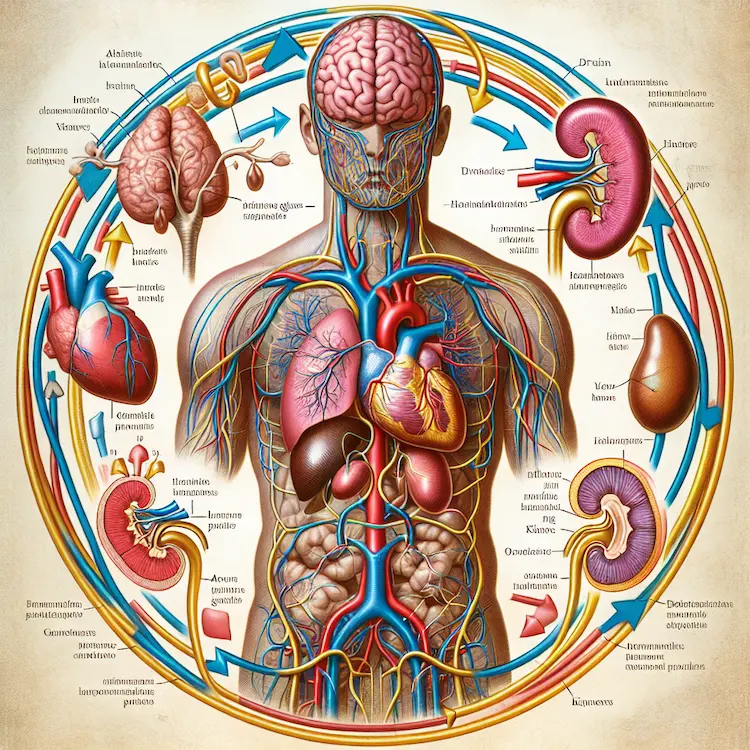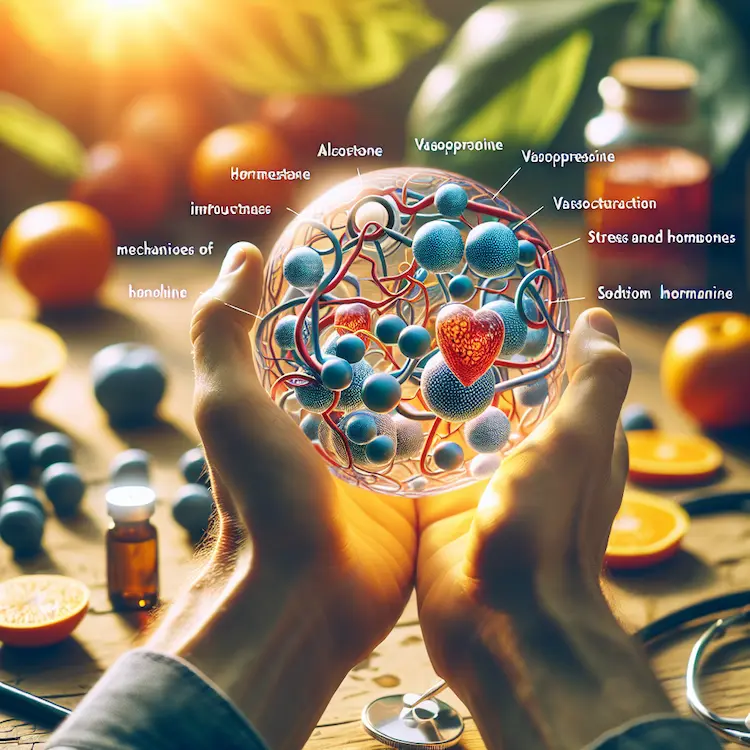Blood pressure regulation is a complex physiological process that involves multiple systems working in harmony to maintain homeostasis. Hormones play a crucial role in this intricate dance, acting as chemical messengers that influence various aspects of cardiovascular function. This article explores the pivotal role of hormones in blood pressure regulation, their mechanisms of action, and the implications for health and disease.
The endocrine system is a network of glands that produce and secrete hormones directly into the bloodstream. These hormones act on target tissues throughout the body, including those involved in blood pressure regulation. Several key hormones are involved in this process:
The RAAS is a major player in blood pressure regulation. This system involves a cascade of hormones that work together to maintain blood pressure and fluid balance:
The RAAS functions to increase blood pressure by:
Also known as vasopressin, ADH is produced in the hypothalamus and released by the posterior pituitary gland. It plays a crucial role in regulating blood volume and pressure by:
ANP is released by the heart in response to increased blood volume. It acts as a natural counterbalance to the RAAS by:
The interplay between these hormones creates a finely tuned system for maintaining optimal blood pressure. Here’s how they work together:
This hormonal ballet ensures that blood pressure remains within a healthy range, adapting to various physiological demands and environmental factors.

Stress hormones, particularly epinephrine and norepinephrine (also known as adrenaline and noradrenaline), play a significant role in short-term blood pressure regulation:
Gender differences in blood pressure regulation are partly attributed to sex hormones:
The role of sex hormones in blood pressure regulation becomes particularly evident during menopause when the decline in estrogen levels is associated with an increased risk of hypertension in women.
Disruptions in the delicate balance of hormones can lead to hypertension:
Understanding the role of hormones in blood pressure regulation has led to the development of several therapeutic approaches:
| Medication Class | Target Hormone/System | Mechanism of Action |
|---|---|---|
| ACE Inhibitors | RAAS | Block the conversion of angiotensin I to angiotensin II |
| Angiotensin Receptor Blockers (ARBs) | RAAS | Block the effects of angiotensin II |
| Aldosterone Antagonists | Aldosterone | Block the effects of aldosterone |
| Vasopressin Receptor Antagonists | ADH | Block the effects of vasopressin |
| Beta-Blockers | Catecholamines | Reduce the effects of epinephrine and norepinephrine |
These medications have revolutionized the treatment of hypertension and related cardiovascular disorders by targeting specific hormonal pathways.
Lifestyle choices can significantly impact hormonal balance and, consequently, blood pressure regulation:

Ongoing research in the field of hormonal regulation of blood pressure is focusing on:
The role of hormones in blood pressure regulation is a testament to the intricate and interconnected nature of human physiology. By understanding these hormonal mechanisms, we can better appreciate the complexity of blood pressure control and develop more effective strategies for preventing and treating hypertension. As research continues to unravel the nuances of hormonal regulation, we can look forward to more personalized and targeted approaches to cardiovascular health management.